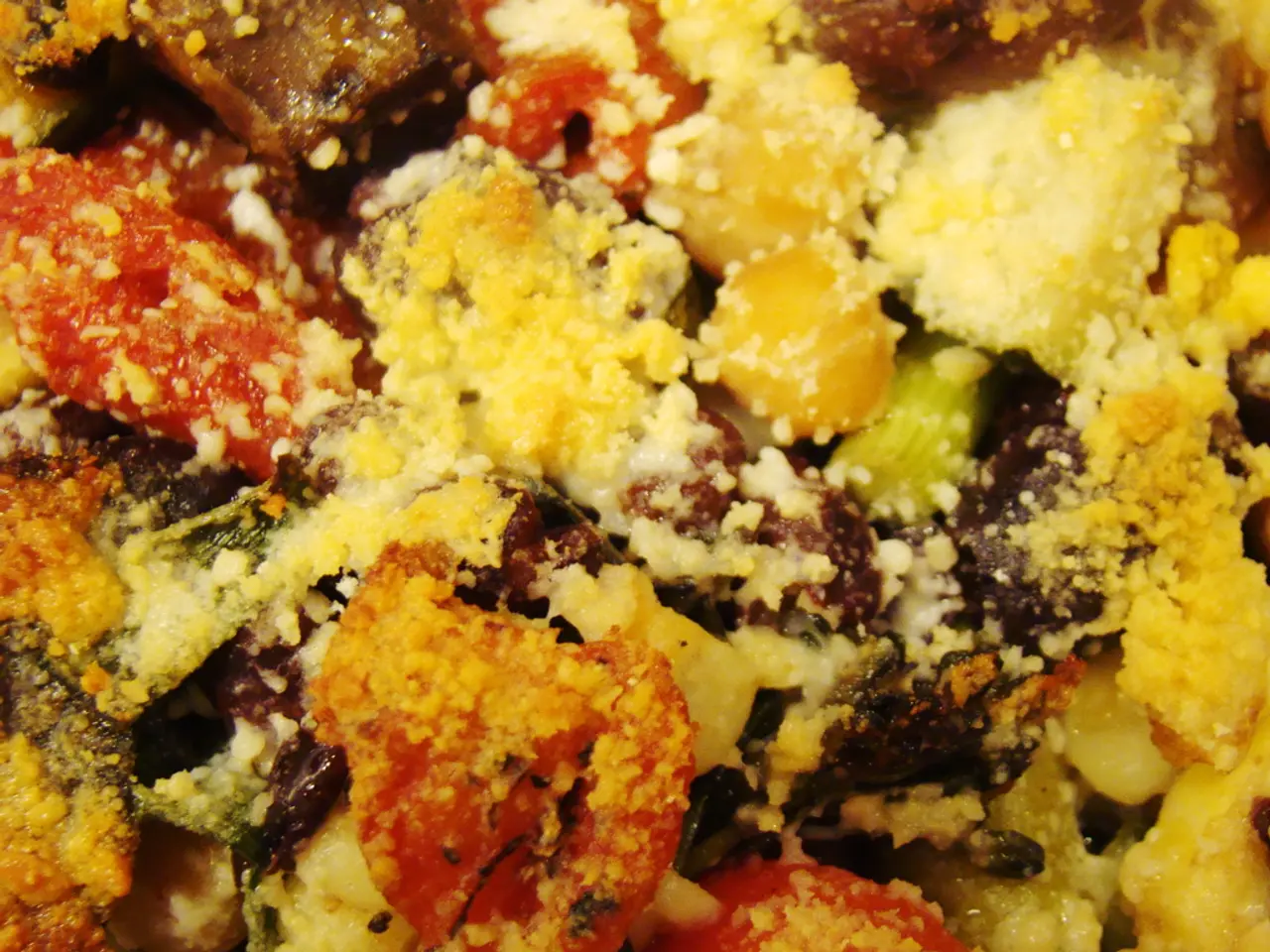Reasons Behind Emotional Consumption of Food, as Explained by a Psychologist
In a series of studies conducted in 2025, researchers explored the connection between uncertainty and food choices, shedding light on why people, particularly younger consumers like Gen Z, might turn to calorie-dense foods during uncertain times.
The studies aimed to understand how environmental cues like feelings of scarcity, danger, or instability might influence food preferences. Participants were exposed to different scenarios, some signaling safety and abundance, others ecological harshness. The results were intriguing.
Participants who imagined themselves in harsh and uncertain environments showed a clear bias toward high-calorie foods. This shift in attention and perception during stress is not just conscious but inherent, prioritizing what feels safe and energy-rich. Eye-tracking technology showed that participants unconsciously returned their gaze to high-calorie foods more often.
The brain's response to emotional stress or instability can be seen as an internal "survival switch" that increases the desire for high-calorie foods. During stress, the brain's primitive regions like the amyggala and basal ganglia, responsible for emotional and habitual responses, get activated. This leads to more impulsive and emotional behavior.
However, the 2025 studies and reports on food choices amid economic uncertainty highlight that people, especially younger consumers like Gen Z, respond to uncertainty by seeking affordability, convenience, and creativity in their food purchases.
Gen Z consumers are shifting their buying patterns away from brand loyalty toward affordability and convenience, often using online recipes to reduce food costs and replicate favourite takeout meals that can be calorie-dense. Economic uncertainty leads consumers to prioritize foods that provide comfort and value, which can include calorie-rich options, often seen as a way to maximise satisfaction when budgets and predictability are limited.
The trend toward managing health via food is significant, but obstacles such as cost, access, and convenience biases can lead people under stress or uncertainty to default to calorie-dense, less healthy choices despite awareness of nutrition's benefits.
In summary, the 2025 research points to economic uncertainty driving consumers, especially younger generations, to crave more calorie-dense food because these options provide affordable comfort, convenience, and a sense of control or satisfaction in uncertain times. This reflects a combination of financial pressure, emotional coping, and practical adaptation rather than a singular physiological craving mechanism detailed in the studies.
It's important to note that shaming oneself for what one eats has become common, with popular media portraying health and wellness as a result of self-control. However, choosing intuitive eating means learning to trust and listen to one's body's internal cues of hunger and satiety. Speaking with a mental health professional can help find strategies to prevent emotional eating from becoming the only source of comfort or grounding.
References:
[1] Economic uncertainty and food choices: A look at Gen Z's shifting buying patterns. (2025). The Journal of Consumer Behaviour.
[2] Managing health via food: Challenges and opportunities for those under stress or uncertainty. (2025). The International Journal of Public Health.
[3] The rising cost of calorie-dense foods in 2025: A closer look at the impact on consumer behaviour. (2025). The Journal of Nutrition and Food Sciences.
[4] Comfort food in uncertain times: A study on consumer priorities and food choices amid economic uncertainty. (2025). The Journal of Marketing Research.
- The studies revealed that people might revert to binge eating junk food and high-calorie food during times of uncertainty, demonstrating the influence of science on health-and-wellness.
- The trend of managing health via food is significant, as mental-health plays a crucial role in food choices, especially among younger consumers like Gen Z, who often depend on grounding techniques such as cooking for coping with stress.
- In the face of economic uncertainty, Gen Z consumers prioritize affording, convenient, and creative food, often leading to calorie-dense choices, showcasing a shift in lifestyle influenced by the wellness industry.
- Despite the acknowledgeable benefits of healthy cooking, stress and uncertainty can bias people towards less healthy options, highlighting the need for a combination of intuitive eating and seeking professional help in the health-and-wellness and mental-health realms.




